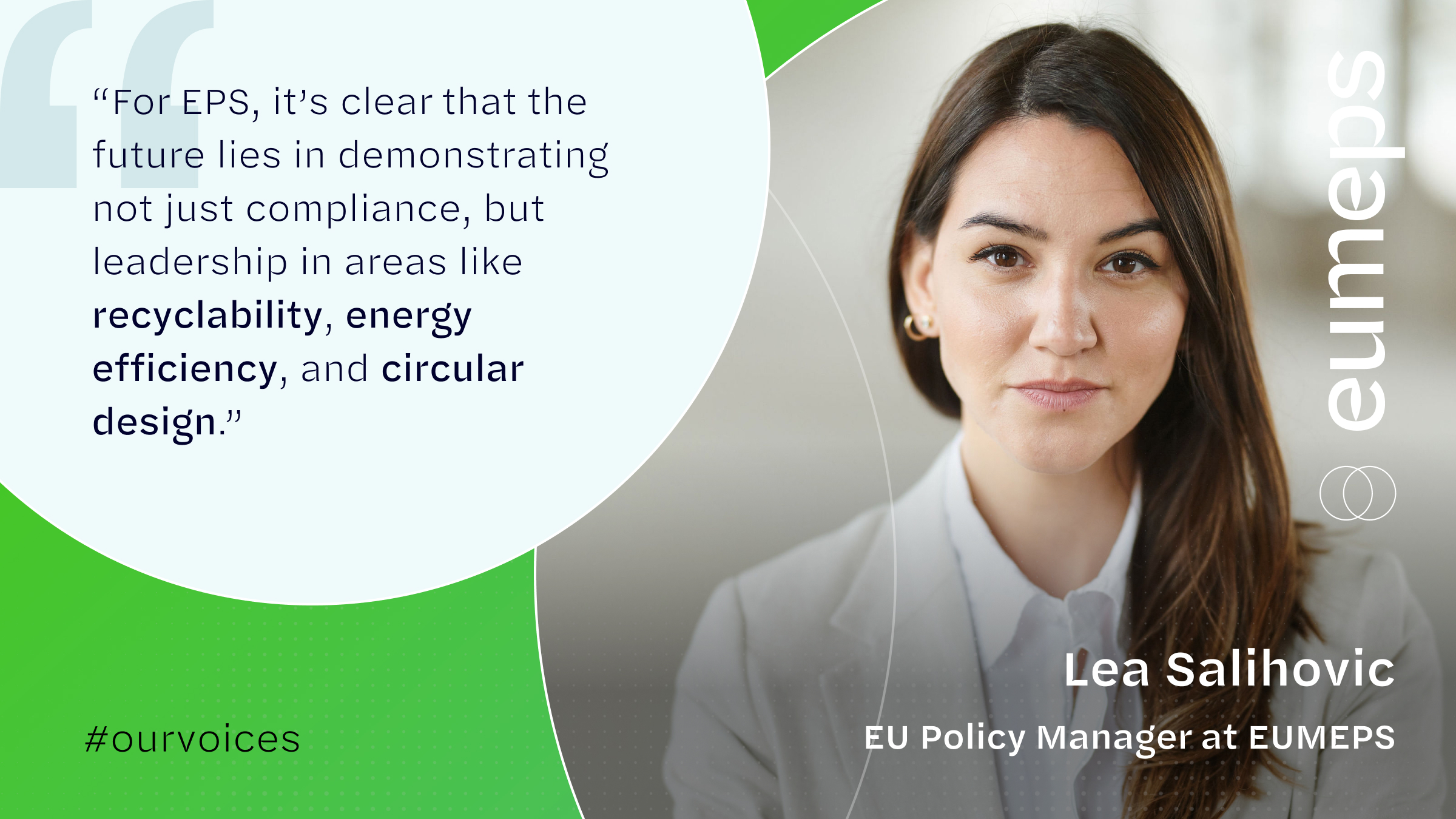On 23 June 2025, Lea Salihovic, EU Policy Manager at EUMEPS, participated in the high-level EU Policy Dialogue on Research and Innovation for a Competitive Green Transition, held in Brussels. As a satellite event of the European Research and Innovation (R&I) Days, the session brought together EU policymakers, researchers, and industry representatives to explore how research and innovation can serve as catalysts for sustainability and industrial competitiveness. The event set the stage for a broader full-day conference the following day and highlighted the strategic role of sectors like expanded polystyrene (EPS) in delivering climate-neutral, circular, and resource-efficient solutions.
Research and Innovation: Core Drivers of the Green Transition
The policy dialogue emphasised the essential role of R&I in achieving the EU’s environmental and economic goals. Discussions highlighted the necessity of creating an ecosystem that nurtures green startups and supports industrial scaleups, particularly in the materials and manufacturing sectors. By focusing on green and blue diplomacy, speakers shared with the audience the importance of aligning EU industrial innovation with global sustainability frameworks and the evolving geopolitical landscape.

One key issue raised was green disinformation, which undermines public trust and evidence-based policymaking. For industries like EPS that often face scrutiny over environmental impacts, addressing misinformation is critical to ensuring an informed, balanced debate on sustainable solutions.
Reflecting on the event, Lea Salihovic shared:
“The dialogue reaffirmed the importance of aligning industry-driven innovation with EU sustainability goals. For EPS, it’s clear that the future lies in demonstrating not just compliance, but leadership in areas like recyclability, energy efficiency, and circular design. Horizon Europe offers a valuable framework for accelerating this transition.”
Relevance for the EPS Industry
For EUMEPS and the EPS industry more broadly, the dialogue reinforced several strategic directions:
- Circular economy approaches and eco-design are central to making EPS applications in packaging and construction more sustainable.
- EU-funded initiatives, particularly under Horizon Europe, are supporting research in areas such as advanced recycling technologies, low-impact production, and life-cycle assessments.
- There is growing emphasis on public-private collaboration to scale innovations that both reduce carbon emissions and increase material recovery efficiency.
In this context, EPS is well-positioned to contribute to Europe’s climate-neutral ambitions by improving recyclability, optimising manufacturing processes, and enhancing the performance of insulation and packaging applications.
Looking Ahead: From Dialogue to Action
The 23 June dialogue also served as a prelude to the following conference on 24 June, where stakeholders examined R&I success stories and future policy directions. Exhibition showcases included 15 pioneering projects funded by Horizon Europe and Horizon 2020, demonstrating the tangible impact of EU investment in green innovation.
As the EU prepares for its next multiannual financial framework, the outcomes of this policy dialogue signal a stronger alignment between innovation policy and industrial transformation. For EUMEPS, continued engagement in such forums ensures the EPS industry contributes to a greener, more resilient European economy.
Conclusion
The EU Policy Dialogue on Research and Innovation highlighted the pivotal role of collaborative, evidence-based innovation in shaping a competitive and climate-neutral Europe. With its focus on circularity, energy savings, and sustainable materials, the EPS sector is not only affected by these developments but is also a key contributor to the EU’s green industrial transition.

